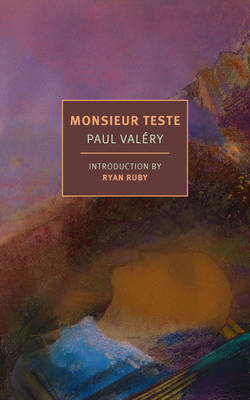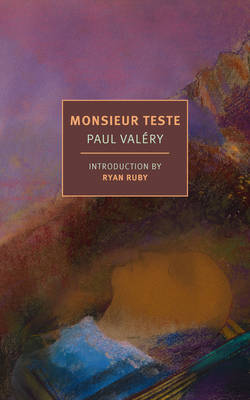
En raison d'une grêve chez bpost, votre commande pourrait être retardée. Vous avez besoin d’un livre rapidement ? Nos magasins vous accueillent à bras ouverts !
- Retrait gratuit dans votre magasin Club
- 7.000.000 titres dans notre catalogue
- Payer en toute sécurité
- Toujours un magasin près de chez vous
En raison de la grêve chez bpost, votre commande pourrait être retardée. Vous avez besoin d’un livre rapidement ? Nos magasins vous accueillent à bras ouverts !
- Retrait gratuit dans votre magasin Club
- 7.000.0000 titres dans notre catalogue
- Payer en toute sécurité
- Toujours un magasin près de chez vous
Description
A defining work of twentieth-century modernism, now newly translated--a philosophical novel about the nature of consciousness, all centered around a character who is composed of absolute brain and intellect, a character of pure mind. In 1892, during an intense thunderstorm, the great Symbolist poet Paul Valéry underwent an existential crisis. For the next twenty years, he wrote no poetry, devoting himself instead to the study of philosophy, mathematics, and language--and to the creation of his literary alter ego, Monsieur Teste, who first appeared in the 1896 novella The Evening with Monsieur Teste, and about whom Valéry continued to write for the rest of his life. Middle-aged Monsieur Teste lives on modest speculations on the stock market. He resides in a greenish room smelling of mint, takes a daily stroll with his wife, and would be entirely unremarkable, were it not for the fact that he is a being made up of pure consciousness, a Cartesian creature of pure rationality, intellect, and self-control. Teste is old French for "head," and detached from senses and emotions, Monsieur Teste feels skepticism for all received wisdom while also refusing to hold any opinions of his own. What would such a man make of his own thought processes? And what would he make of human relationships and the world? Standing in counterpoint to Robert Musil's The Man Without Qualities, Monsieur Teste is without a doubt one of the most enigmatic and searching manifestations of the modern imagination. A genre-defying exploration of the nature of language and consciousness, Valéry's full body of writings on Monsieur Teste is presented here in a stunning new translation by Charlotte Mandell.
Spécifications
Parties prenantes
- Auteur(s) :
- Editeur:
Contenu
- Nombre de pages :
- 104
- Langue:
- Anglais
Caractéristiques
- EAN:
- 9781681378923
- Date de parution :
- 03-12-24
- Format:
- Livre broché
- Format numérique:
- Trade paperback (VS)
- Dimensions :
- 122 mm x 198 mm
- Poids :
- 113 g

Les avis
Nous publions uniquement les avis qui respectent les conditions requises. Consultez nos conditions pour les avis.






